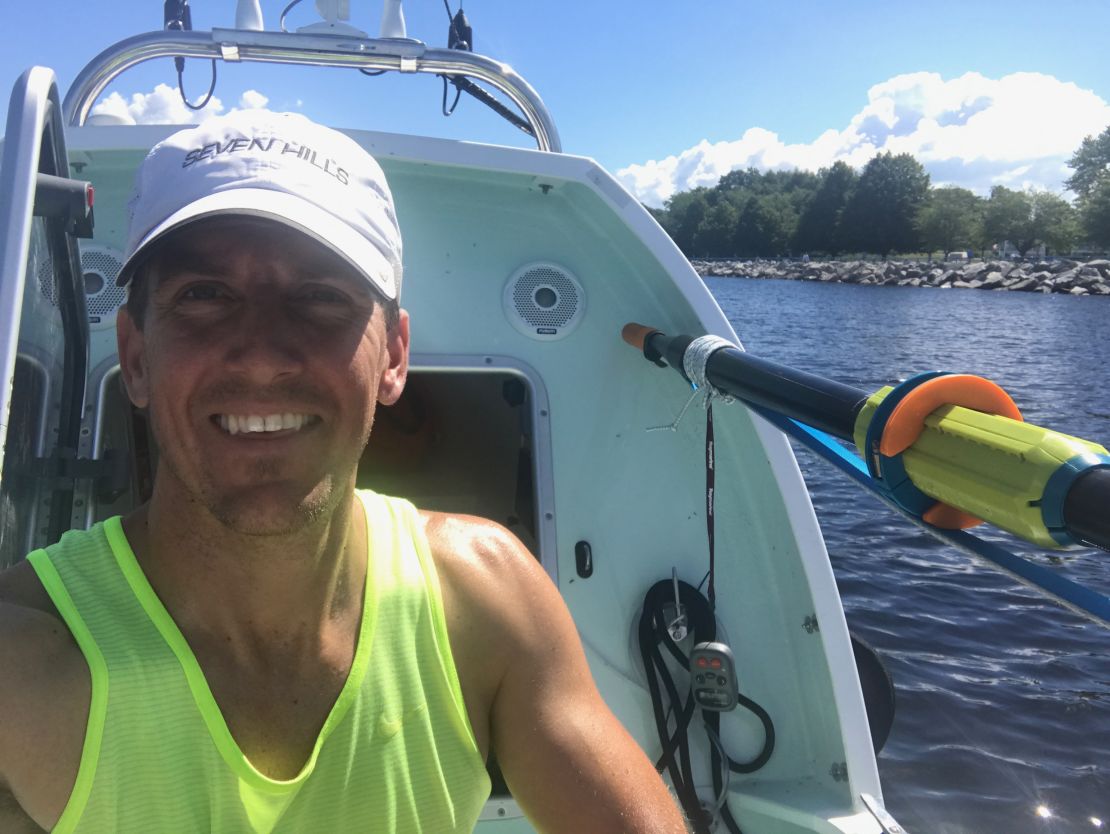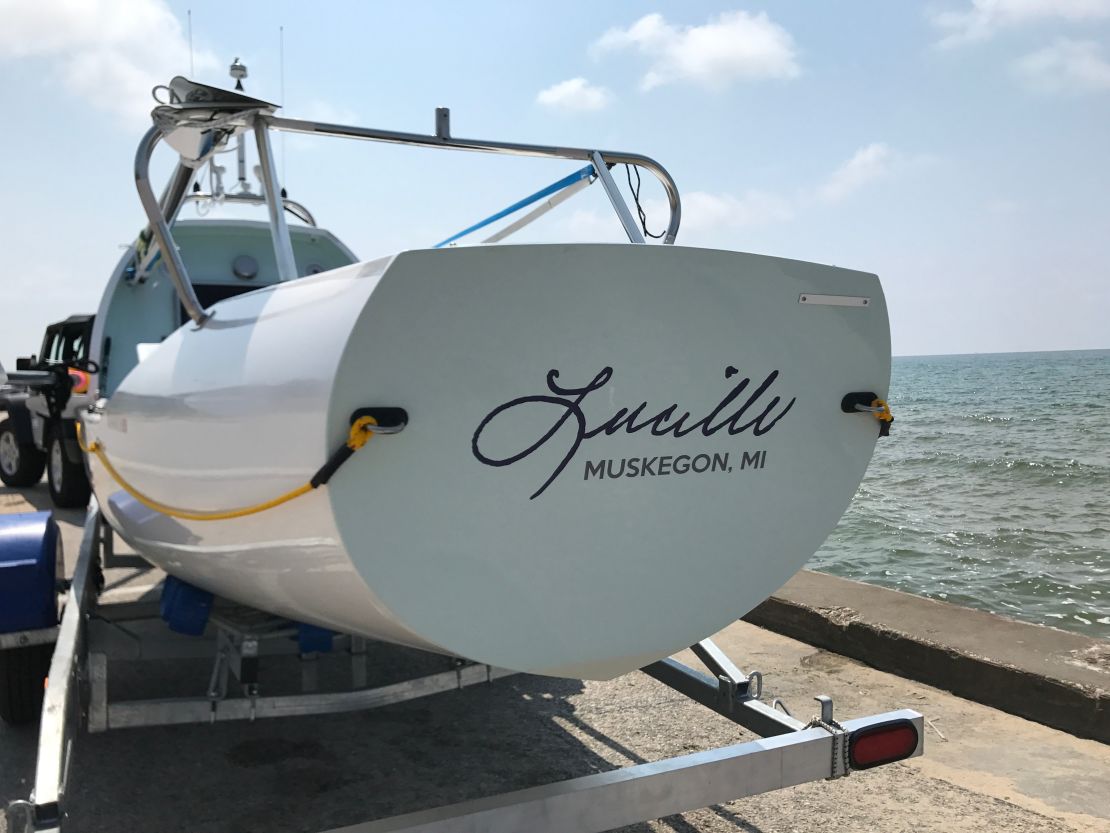Story highlights
Carlson hopes to become the first American to row solo across the North Atlantic
He estimates the expedition will be between 50-60 days
In between teaching biology and psychology classes, grading his student’s papers and revamping lesson plans, high school teacher Bryce Carlson is an extreme sport athlete, weaving in a few hours of volume-based endurance and muscle training into his daily routine.
And his next athletic challenge is a massive one.
On Thursday, the 37-year-old Carlson, who teaches at the Seven Hills School in Cincinnati, Ohio, will begin what he says will be a 50-60 day expedition to become the first American to row solo, unsupported across the North Atlantic Ocean from Newfoundland, Canada to Penzance, England.
According to Carlson, 31 other people have tried to row the same North Atlantic route solo and unsupported, but only half have been successful. It’s a daunting task, but one that he says he is fully prepared for.
The 5-foot-11-inch Carlson is no stranger to extreme endurance events. In 2014, he completed the 152-mile Spartathalon – a famous ultramarathon from Athens to Sparti in Greece. And in 2015, he ran nearly a marathon a day for almost five straight months.
But Carlson says his upcoming expedition is unlike anything he’s ever done.
“I’ve never been completely alone for this period of time,” he said. “I’ve never been out in the middle of such a vast and powerful landscape in the absence of distinct visual markers, distinct markers of progress. I don’t know what that’s going to do to my head.”
READ: The boat changing lives and attitudes high in the Arctic

Sharing the experience
That’s why professors from the University of Washington and University of Michigan are planning to track how Carlson’s mental state changes throughout his journey. Carlson, who holds a doctorate in biology from Emory University in Atlanta, has also used previous scientific research to calculate his daily calorific needs and to learn more about how his body might react in high stress situations.
Growing up on the shore of Lake Michigan, Carlson wanted to be a marine biologist. He rowed at the University of Michigan and maintained his affinity for the water as he entered academia.
He acquired his boat — a white 20-foot-long vessel that cost about $75,000 — about a year ago and spent much of last summer on the water.
But during the school year, with no nearby access to water, it became time prohibitive for Carlson to take his boat out of storage. Instead, he spent most of his training time on an indoor rowing machine.
READ: Meet the first man to sail solo non-stop around the world
Carlson is excited to learn more about himself during his 2,000-mile voyage. He’s also looking to pass his knowledge along to those who might be curious.
“A big reason why I’m doing this is one, to have an adventure by myself, but also to learn and to grow and to share that experience with as many people who might be interested in it,” he said.
READ: Sailor sacrifices sleep for science to save the planet

His boat, named Lucille in honor of his late grandmother, is equipped with almost $100,000 of electronic equipment. Some of the technology will help guide Carlson throughout his adventure, but he also has set up a live tracker that can be seen on his website, Brycerows.com, where people can also note his speed, location and read Carlson’s social media updates.
As a teacher, Carlson is not only trying to inspire his students to engage with the world around them, but also to tell a more widespread story of human fragility and human resilience.
“I’m not undertaking this just to be safe,” Carlson said. “I know there’s some risk, and I think that’s partly what makes it so special.
“At the end I’m sure I’ll feel a sense of elation, a gratitude at the experience.”
